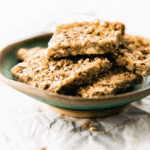Finding the best BCAAs for women can be challenging, especially when you’re new to the world of fitness. There are a lot of supplements out there that claim to help you “lose weight” and “aid workout recovery,” and it can be frustrating to parse through all of the options to find the exact supplement with the precise ingredient that’s going to work for you. So, today we’re going to talk about an ingredient in supplements that have shown real evidence of helping to burn fat, recover from workouts faster, and even gain some muscle– BCAAs. To find what best works for you, we have to understand what BCAAs are, how they work in the body, how BCAA for women works, and what these amino acids can do for us both in and out of the gym.
What Are BCAAs?
BCAAs, which stands for branched-chain amino acids, are made up of the three essential amino acids– leucine, isoleucine, and valine. Typically, BCAAs can be found in the highest concentration in eggs, meat, and dairy products; but they can also be found in dietary supplements. BCAAs are unique because they are “essential” amino acids, which means that your body can’t make them, and they need to be found in your diet.
How Do BCAAs Work?
Most amino acids in the body are broken down in the liver, but BCAAs are broken down mainly in the muscles. BCAAs have a unique molecular structure that makes them the only three amino acids to have a chain that branches off to one side; this particular feature of their structure is what makes them group together.
 One of the most critical roles that BCAAs play in your body is as building blocks for your muscle and protein; this mostly lands within leucine’s jurisdiction. On the other hand, isoleucine and valine have a part in blood sugar regulation via preserving sugar stores and stimulating your cells to take in sugar from the bloodstream. They also help to reduce exercise-related fatigue by reducing serotonin production in the brain.
One of the most critical roles that BCAAs play in your body is as building blocks for your muscle and protein; this mostly lands within leucine’s jurisdiction. On the other hand, isoleucine and valine have a part in blood sugar regulation via preserving sugar stores and stimulating your cells to take in sugar from the bloodstream. They also help to reduce exercise-related fatigue by reducing serotonin production in the brain.
Best BCAAs for Women
You can get a healthy amount of BCAAs just from a healthy diet, but if you’re focused on optimizing your workouts for muscle growth, weight loss, and less exercise fatigue, then it may be a good idea for you to dive into BCAA supplements. There’s a variety of ways that you can supplement BCAA into your diet, but the most popular form is a powder supplement that’s consumed before, during, and/or after exercise. Here are our top picks for BCAA supplements specifically designed for women:
PrettyFit BCAA Burn
Our top recommendation for the best BCAA for women would definitely be the PrettyFit BCAA Burn Powder. This powder, mainly intended to be a pre-workout BCAA supplement, contains a 2:1:1 leucine, isoleucine, and valine ratio, as well as the added combination of glutamine, conjugated linoleic acid, and carnitine. All of these ingredients work together to increase the number of calories you expend when you workout by boosting your performance and encouraging your body to burn more fat.
Another main advantage of this powder is the fact that it’s entirely free of any stimulants, calories, sugars, or carbs. Many powders claim to help you get fit, but end up just being an unhealthy sweetener powder to add to your drinks that ultimately harm more than help.
Her Aminos by NLA for Her
If you’re looking for a broad-spectrum amino acid supplement that comes packed with more than just BCAAs, then Her Aminos by NLA for Her powder should be your top choice. This powder supplement includes the three branched-chain amino acids (leucine, isoleucine, and valine) in addition to others such as citrulline, taurine, glutamine, and beta-alanine. This highly concentrated combination of amino acids is designed to assist you, specifically in your endurance, muscle building, and recovery. If your workouts lean more towards the intense and high-powered side, and you’re looking for a supplement that may help you perform better and recover faster, then this supplement should be on your radar.
FitGirl RecovHer
As the name suggests, FitGirl RecovHer powder is a dietary BCAA supplement designed to aid your body in post-workout recovery; however, it does much more than that. Similar to the PrettyFit powder, this contains a 2:1:1 ratio of leucine, isoleucine, and valine for its BCAAs, But what makes it unique is the fact that it also includes electrolytes in a small quantity and betaine, which is a sugar beet derivative that many believe can assist in workout performance. Another unique aspect of this powder is the fact that it uses a bitter blocker to help get rid of the unpleasant taste that many BCAA powders tend to have. So, if you can’t bear to stand the taste of a BCAA powder in your workout drinks, then this may be the best supplement option for you.
Benefits of BCAA
BCAAs have made a name for themselves as a supplement mainly used by bodybuilders to boost their muscle growth. While that is one of the most popular benefits of a BCAA supplement is that they may also be capable of improving post-workout recovery, weight loss, and even liver function. Here are the main benefits that you may see when taking a BCAA supplement:
Promote Muscle Growth
Since BCAAs are present in our muscles and are building blocks within them, it’s natural to turn to BCAAs for encouraging muscle growth. Research supports this thinking, showing that BCAAs do indeed activate the enzymes responsible for building muscles in our bodies. In fact, some studies have shown that BCAA supplements with specifically higher amounts of leucine were effective in increasing muscle mass. However, studies haven’t concluded that BCAA supplements are more beneficial than BCAAs through diet, so one isn’t definitively more effective than the other at the moment.
Reduce Exercise Fatigue
One of the most popular uses for BCAA is as an energy booster during and after exercise. BCAAs are most likely effective in this way due to their ability to reduce serotonin production in the brain, which aids in post-exercise fatigue recovery. One study went forward to show this effect, reporting up to 15% less fatigue in their participants that were given BCAAs during exercise. Another study showed that a group that had taken BCAAs were able to exercise for 17% longer before becoming exhausted.
Help With Weight Loss

Another possible benefit that is popularly discussed in relation to BCAAs is their ability to help with weight loss and prevent weight gain. This is mostly due to BCAAs helping your body to effectively get rid of unwanted fat. Several studies have actually reported that those who consumed 15 grams of BCAAs on average from their diet tended to have a 30% lower risk of becoming overweight or obese. Another study showed that competitive wrestlers on a high-protein, restricted calorie diet that was supplemented with BCAA ended up losing 3.5 more pounds when compared to a group taking a soy protein supplement instead.
However, the research is somewhat lacking in this area when compared to other documented benefits of BCAAs, so more studies need to be done to confirm whether or not BCAAs are an effective form of weight loss.
Benefit Liver Disease
Contrary to popular belief, workout-related benefits are not the only benefits for our provided by BCAAs. Many believe that BCAAs can help to reduce related complications of liver failure, specifically hepatic encephalopathy. In a recent review of research, it was suggested that patients with liver disease could see more benefit in reducing the severity of hepatic encephalopathy. Another review also found that BCAA supplements were able to improve liver function and reduce the risk of complications in patients undergoing liver surgery.
However, it should be noted that, in the review regarding hepatic encephalopathy, BCAAs did not play a role in improving overall liver failure survival rate. They were also unable to lower the risk of other complications related to liver failure, including infections and gastric bleeding.
BCAAs Side Effects
In general, it’s safe to take BCAA supplements, and most people do not exhibit any BCAAs side effects. The currently accepted safe total BCAA daily intake is between 15-35 grams. However, there are a few extenuating circumstances that may make BCAAs unsafe for some people:
- Lou Gehrig’s Disease: It’s not recommended for those who have ALS, or Lou Gehrig’s Disease, to take BCAA supplements.
- Maple Syrup Urine Disease: Individuals suffering from this rare congenital disorder are advised to limit their BCAA intake due to their bodies’ inability to break them down correctly.
For healthy adult women, the recommended BCAA dose to consume is a minimum of 9 grams per day to stay healthy; this amount can easily be met daily through a healthy diet. But, recent research says that the daily recommended requirement could be as high as 65 milligrams per pound of body weight per day, a much larger amount compared to the 1985 World Health Organization standard of 15 milligrams.








